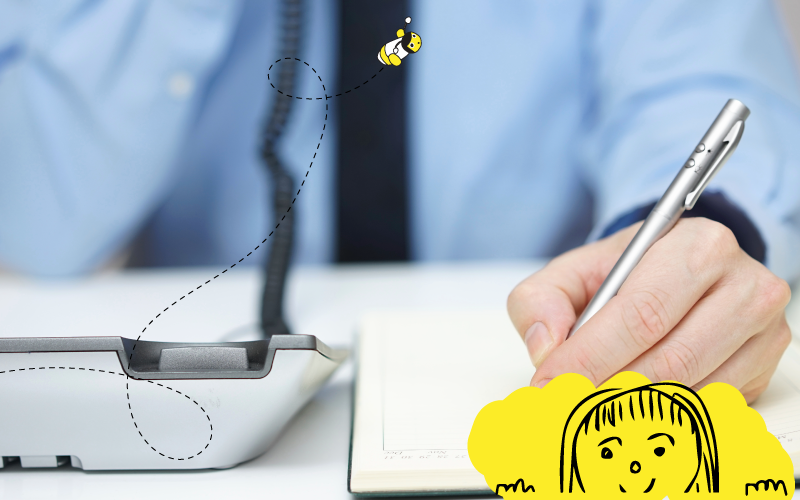With the recent COVID-19 outbreak, a good CV will only get you so far. It has become far more common for Hiring Managers to conduct preliminary interviews over the phone, so if one likes the look of your credentials, they’re going to call you before inviting you for video interview. The impression you leave will be the deciding factor on whether you’ll be invited to the next stage over other candidates, which is why it’s important to take a phone interview just as a seriously as any other interview. These are the core steps you can take to ensure you make it to the next stage.
Prepare
Start preparing for the interview days in advance, just like you would with a face-to-face interview. You can do this by printing out your CV and if possible, the application you sent, and beginning to research the company. Don’t just find out boring statistics, or how long they’ve been operating for. Instead, find out what they’ve been up to lately, and perhaps learn why the opportunity you are applying for exists in the first place. A company’s website will tell you a lot about them, but go beyond that and look for any news releases they have published. If you can’t find anything, then a well thought out Google search could help to see if they have featured in any publications lately.
Whilst you’re researching the company, extend this research to the person who will be interviewing you. You should already know who will be conducting the interview, so finding them on LinkedIn shouldn’t be too difficult. Although you may also find valuable information on their career and position in the company, it's mostly to put a face to their name, as it’s considerably easier to talk to someone if you know what they look like.
Remember, all job interviews regardless of how they are conducted go both ways. They’re trying to find out if you meet what they’re looking for in an ideal candidate, and you need to work out if this is the sort of employer you want to work for. Start by preparing a list of questions such as “What are you looking for in an ideal candidate?” or “How often do opportunities to move around the company come up?” Go for questions that will show your interest in both the job and the company, and avoid questions that focus on salary, benefits or anything they can do for you.
On the Day
Before you’re ready to take the call, make sure you’ve found a quiet isolated room away from any interruptions such as pets, children or blaring TVs. If possible, use a landline, as mobile reception can always drop. If this isn’t possible then make sure your mobile is fully charged and you’re receiving the call where you know you will have a strong signal. Also, save the interviewers phone number so you can call them back if you do get disconnected.
It’s good practice to dress as smart as you would for a face-to-face interview. They may not be able to see how professional you feel but they will hear it, as you’re much more likely to sound professional and confident if you look the part. Even though they can’t see you, you should still smile. Smiling as you speak will prevent you from sounding either bored or uninterested.
Some interviews now take place via Skype or video calling, which means the interviewer will be able to see you. You should know if this is the case before the interview takes place, but if you dress to impress regardless then you won’t be caught out.
Have your printed CV and application ready in front of you. This will help to prompt your answers, as chances are they will want you to explain everything on it.
On the Phone
Taking part in a phone interview takes considerably less time than a face-to-face one, which means you have less time to make a good impression. Avoid long-winded answers that could lose the attention of your interviewer by keeping your responses shorter than three sentences.
Be aware that you’re going to need to answer some difficult questions without raising any red flags. Large gaps in employment or frequent job changes will usually be brought up by an interviewer and you need to be prepared to answer them in a factual, non-defensive way.
During a face-to-face interview, you have the ability to look at your interviewer(s) which can help keep your focus. Whilst on the phone, your focus can very easily waver. As you’ve already taken steps to remove yourself from any potential distractions, try and avoid multi-tasking. Listen carefully to the interviewer’s voice and take notes during the call, as this will allow you to keep to your plan and stay focused on what is being said.
Being polite and professional throughout the call should go without saying, but with so much to already remember and prepare for, it’s quite easy to forget to end the conversation with a ‘thank you’. The last few words of any conversation are often the most remembered.
Following Up
The interview may have ended but your work is far from over. Whilst the interview is fresh in your mind, you need to first work out if you want to proceed further with your application. If you decide you want the position, then you should draft an email thanking the recruiter who put you forward for the role, whilst also summarising what was discussed to reinstate your interest. Aim to send this email after 24 to 48 hours after the interview has been concluded.
As more candidates enter the job market each year, more companies are having to utilise phone interviews to filter through applications before offering face-to-face interviews. Following this guide will provide you the ability to prepare for these interviews which can allow you to get your foot in the door. If you have any more questions about how to interview over the phone, or even on what happens next after an employer has asked for you to come in, then feel free to get in touch.





